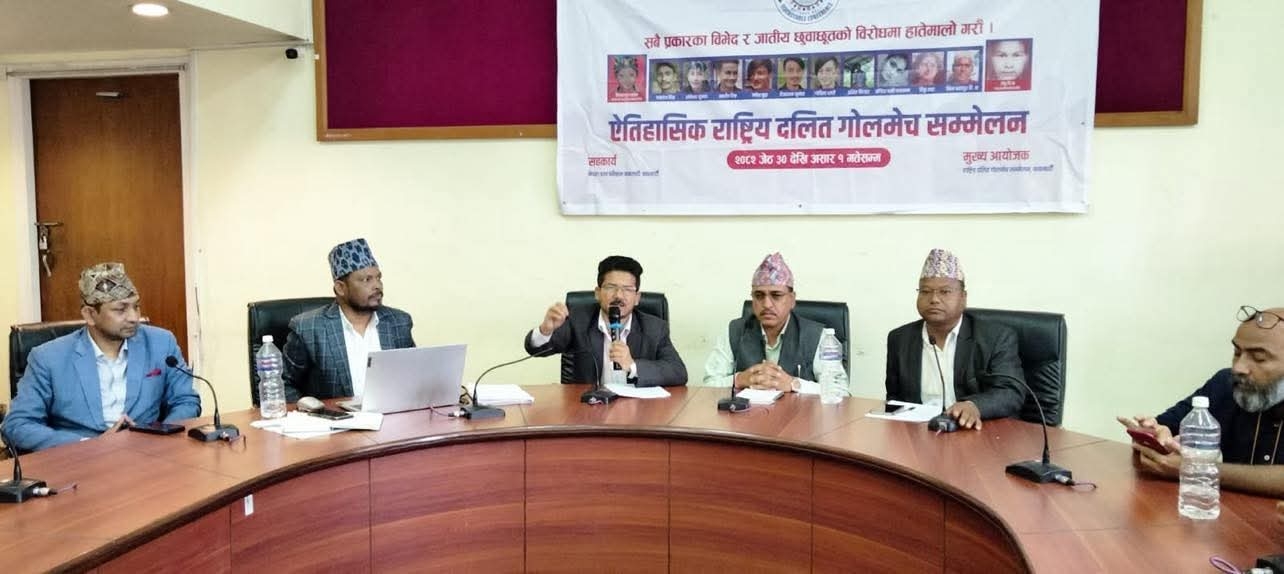

KATHMANDU: The first-ever National Dalit Round Table Conference concluded yesterday after a three-day event held at the Nepal Academy in Kamaladi, Kathmandu.
The historic gathering brought together 250 participants representing 132 organizations from all seven provinces of Nepal, including activists, scholars, and civil society leaders.
The participants engaged in meaningful discussions aimed at promoting Dalit dignity, equality, inclusion, and emancipation.
The conference was jointly inaugurated by Haribhakta Mijar and Dipak Malli Dom, both representing families affected by caste-based violence.
Haribhakta Mijar is the father of Ajit Mijar, a young man who was allegedly killed for marrying a woman from a so-called upper-caste group. His body remains in the morgue of Tribhuvan University Teaching Hospital, awaiting justice.
Dipak Malli Dom, a resident of Aurahi in Siraha, was forcibly displaced after his house was demolished during a religious ritual known as Mahayagya, further highlighting the ongoing caste-based oppression in Nepali society.
Over the course of the conference, participants discussed 13 key issues confronting the Dalit community. These included debates on whether to continue using the term “Dalit,” the need for constitutional amendments, land reform, inclusive electoral systems, the structure of federalism, access to health and education, internal discrimination within the Dalit community, the rights of Dalit women, and critical perspectives on Hinduism, among others.
The event culminated in the endorsement of a 42-point National Dalit Declaration, which places social justice at the center of the Dalit rights movement.
The declaration proposed the idea of “community socialism” as a viable and sustainable model for uplifting the Dalit population. It also emphasized that caste-based discrimination and untouchability are not just issues for Dalits, but national problems that require collective efforts from both Dalit and non-Dalit communities to eliminate.
To implement the declaration’s goals, the conference announced the launch of a new initiative called the Dalit Campaign for Social Justice.
A 21-member coordination committee was formed under the leadership of Nirmal Bishwokarma to steer the campaign forward.
The conference also resolved to continue organizing such round table discussions as part of an ongoing national campaign.
In the coming days, the newly formed committee will hold dialogues with religious leaders, political parties, government bodies, and key political figures to ensure broader support and implementation of the declaration’s objectives.